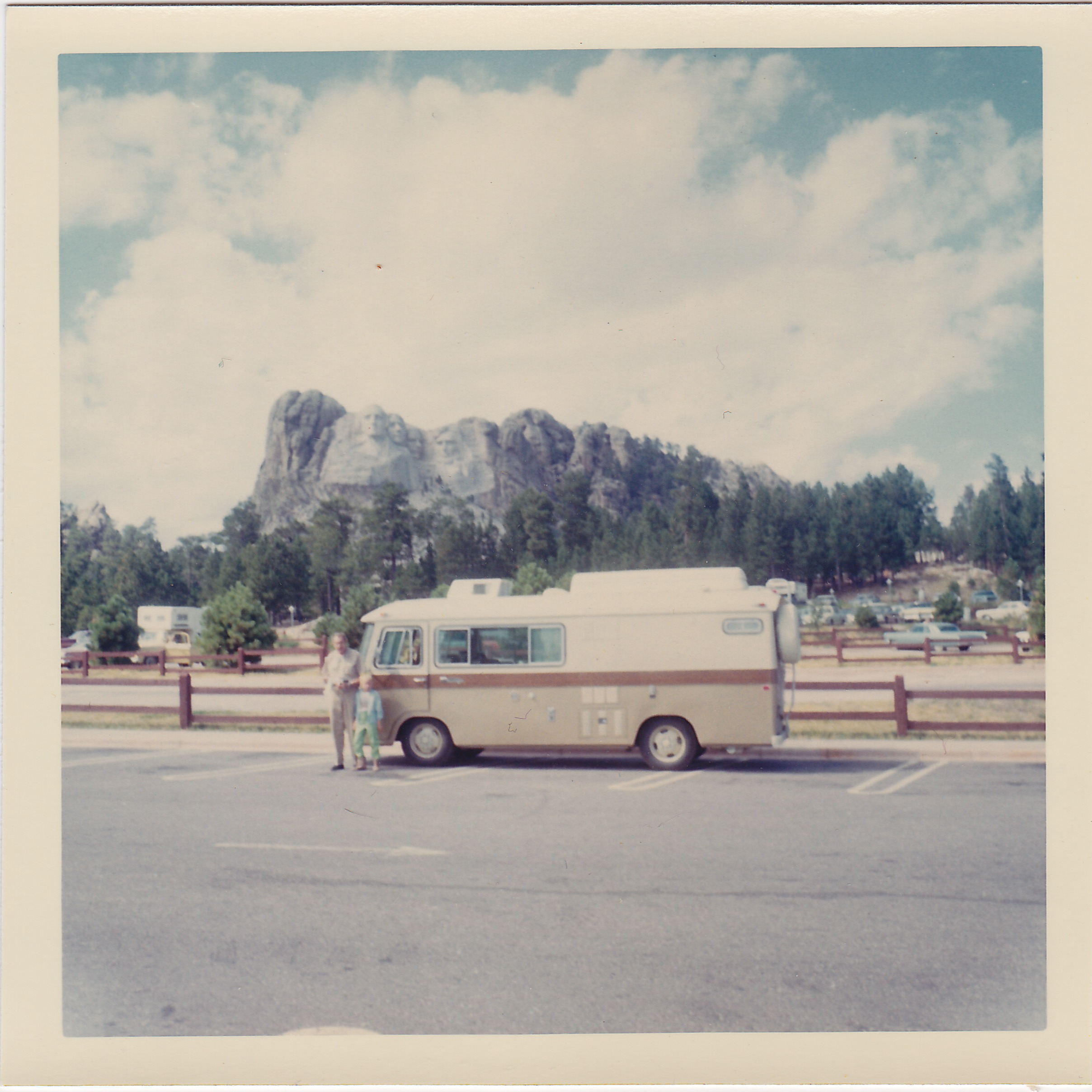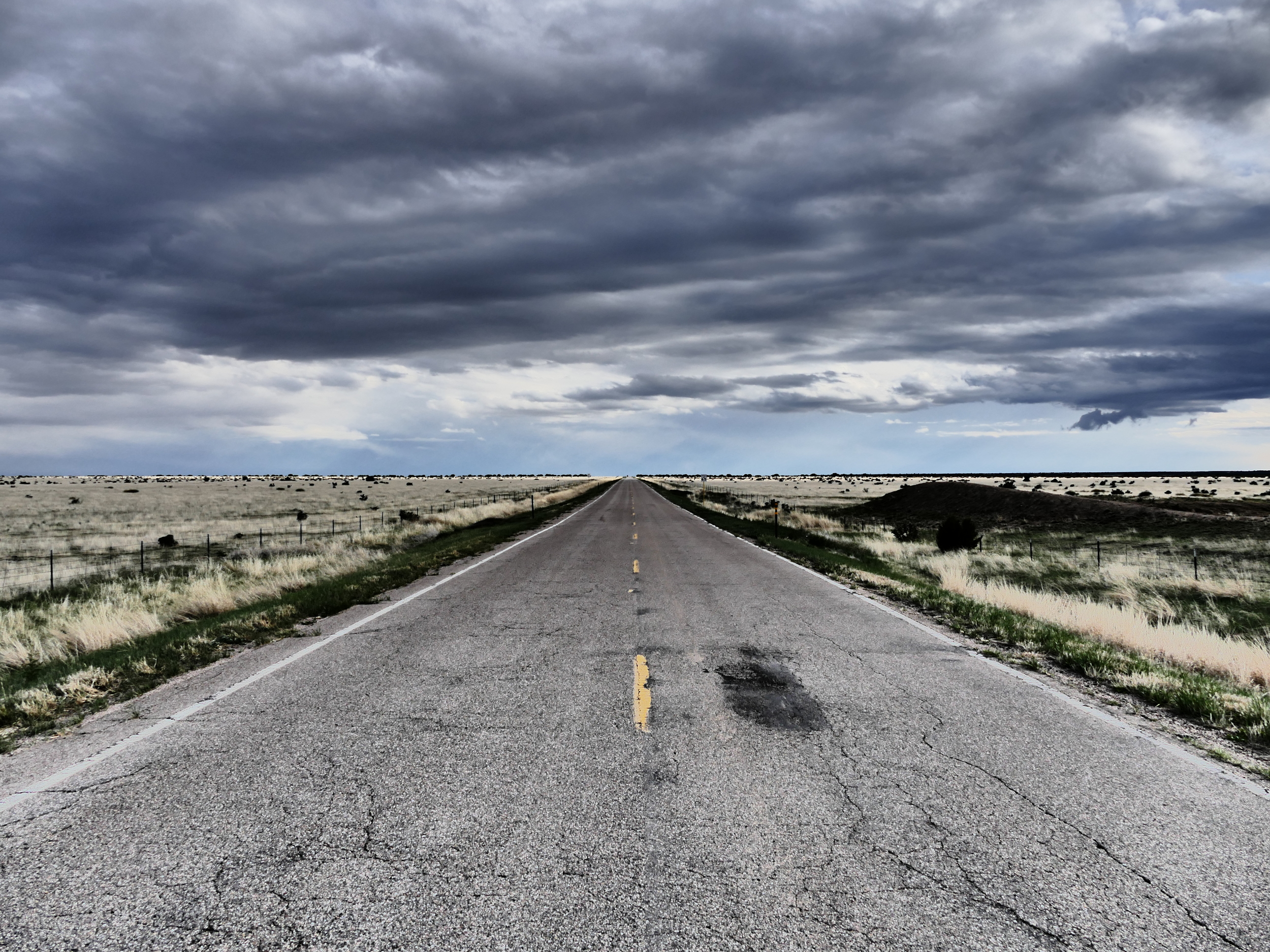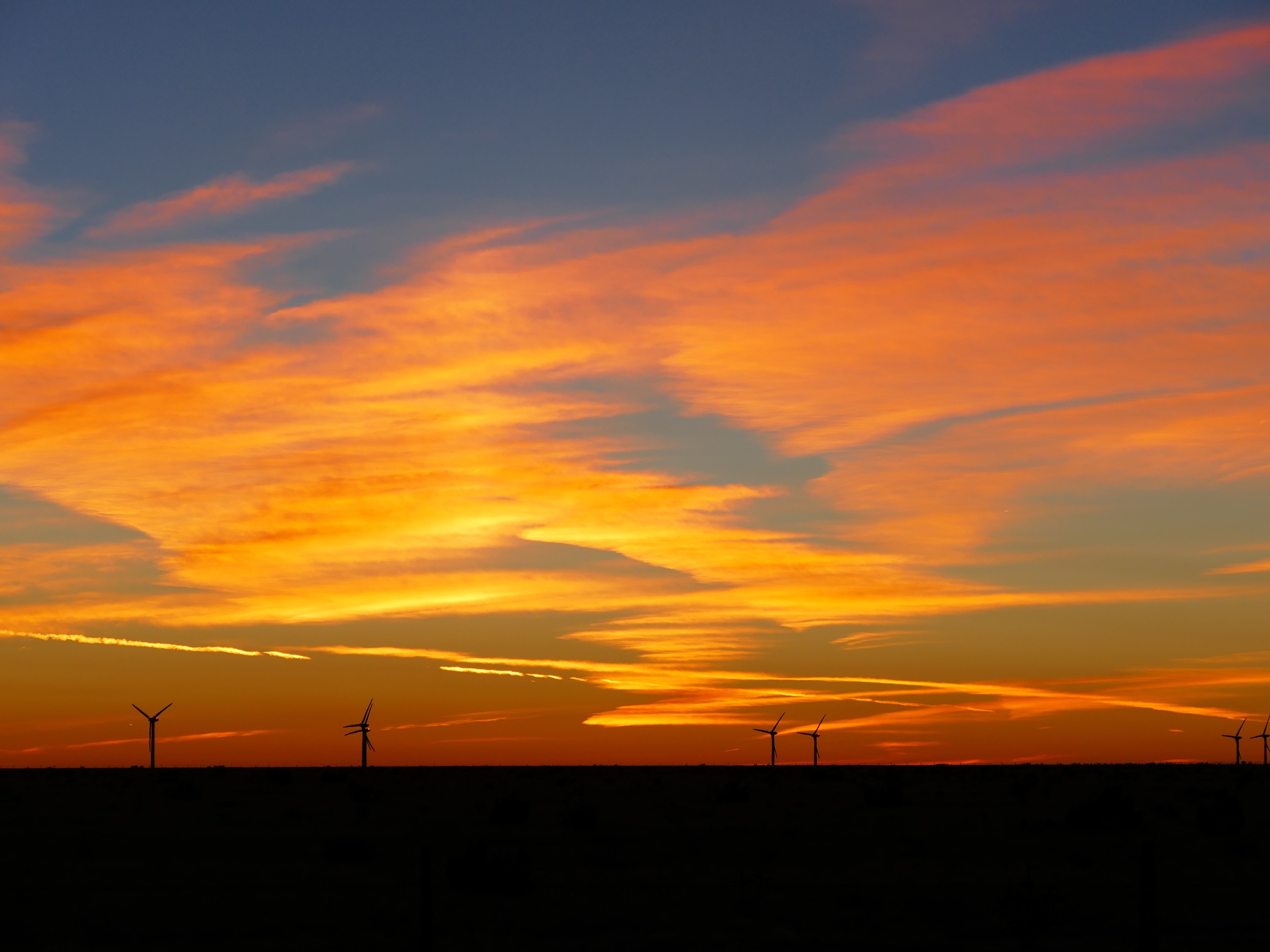I love to drive. Before the idea of a daily practice of joy even came to me, I drove to design projects in other states or to public speaking gigs halfway across the country. I’ve put 30,000 miles on my car driving cross country twice and to Canada once — and that’s just in the last 16 months. Whenever I can, I drive — often ridiculously long distances, and usually alone.
Driving makes me feel like I have just enough of a “job” to assuage my need to “do". But of course, other than keeping my eyes on the road and getting to my destination, what I really have is a long stretch of open road and open-ended time ahead of me. About halfway from wherever I’ve come from and wherever I’m going, I always feel a moment of absolute elation. Always. There, on the open road, I inevitably reconnect with my joy.
One of the reasons I love to drive is because some of the best moments of my childhood took place when my mom, dad, and I got in our Clark Cortez RV and headed out to the Indian reservations in South Dakota, eastern Oregon, or New Mexico for my dad’s work with the Indian Arts & Crafts Board. Out there on the road, we actually felt like a family, each with our appointed roles. My dad was the driver, and I — being the only one in our family blessed with a sense of direction — the map reader and navigator. Which left my mother to be something she could never be in real life — a passenger enjoying the view. For my dad and me, our time was a journey of discovery — all chronicled through my mom’s photographs. For the most part, the three of us were able to leave celebrity and shoulds at home and connect to the world and one another in love and joy! Those are my fondest childhood memories.
But there has always been one hitch in my giddy up when it comes to driving. For those of you who don’t know me, I am perpetually late. Toria time, as a general rule, runs about 10 - 20 minutes later than a clock. I have been told how rude it is, how disrespectful of other people’s time. I know that, and I hate myself for being late. But I’ve never had much success in breaking the habit. . .until recently, when my daily practice of joy changed how I drive.
In the past, I would sometimes drive for 10 - 12 hours straight to get where I was going, even waiting to pee until I had to get gas. You see, I have a taskmaster who runs the perpetual clock and calendar in my head. She is not very nice: She may make me good at my job, but hers is a lousy way to live. And that, I realized finally, is why I am always late. I’m like that rebellious child who makes poor choices in standing up to what she feels are unfair demands of her parent. Being late is me flipping the bird to my tyrannical inner timekeeper who says there is no time for fun.
But my daily practice of joy has changed everything, because now I drive differently. I take back roads and I take my time.
Take this week’s drive from Denver to Dallas: On Monday, I left Denver about midday. After a long weekend of giving three talks, attending a series of dinners, and meeting and talking with people for two straight days at the convention I attended, I felt tired — and I had a big week of work ahead of me. Part of me said, Take the Interstate and get there as fast as you can. But the other part of me said, Stick with the plan. Practice joy.
I did. When I turned off the Interstate, I ended up driving through long stretches of agricultural areas — green fields, small towns with beautiful old mansions and run-down motels filled with migrant workers. When I drive the back roads, I see how the people who supply our commodity-driven world live, where the food I eat comes from, and sometimes I come face to face with what the food I eat really is — driving through towns thick with the stench of slaughterhouse. Getting off the treadmill of this more more more life requires consciousness not avoidance — and thinking about how the majority of the world really lives. . .even when it’s difficult to face. . .is critical.
This week, in honor of Earth Day, many news sources ran stories about the two degrees that separate us and our planet from utter catastrophe. If we do not succeed in preventing the average temperature of the planet from going up two degrees, we face complete annihilation. This is not hyperbole or a disaster movie or liberal propaganda. This is the accepted view in even the most conservative scientific circles.
But it’s hard to take in, hard to believe that how we live our lives is causing the destruction of the planet when we are constantly bombarded with more reasons to buy in to our current way of life. So, after the articles ran on Earth Day, they disappeared. The CNN website keeps the same stories up about the Kardashians or Justin Bieber for days. But the potential annihilation of the planet? Gone.
When I drive, when I listen to that inner voice I am usually to busy to hear that says, Turn right here. . .I find myself in places of almost impossible beauty. I see the glory of this planet — the antelope playing, the wildflowers by the side of the road, the thunderheads building in the distance over the mesas. Suddenly those two degrees mean a whole lot more to me than they do when my face is pressed up against a computer screen crunching numbers in Quickbooks.
On my drive from Denver to Dallas, I saw and felt everything my work keeps at bay. All the beauty, all the suffering, all the kindness. On back roads, everybody waves and smiles. Driving my BMW in pickup country, it’s perfectly clear I’m not from there. They still wave, and I always wave back. Because on the back roads, we know that we’re connected, that we’re one human family. When I stop to photograph, inevitably someone drives by and stops to make sure I’m OK. It reminds me to do the same.
And then there are those perfect moments, those moments when you find yourself on a new stretch of road and suddenly you crest a hill and see red mesas stretching as far as the eye can see, a murmuration of little black birds dancing over a river bed, grasslands with looming black clouds in the distance — and a song on the radio that becomes the perfect soundtrack for this extraordinary movie we call life.
But long stretches of open road aren’t all beauty and ecstasy for me. That’s why it’s called a practice. If I work as hard as I do to keep those voices at bay, when I don’t work, they start clamoring for my attention. And when they do, a polite dismissal never suffices. Usually it’s a knock-down drag-out fight to shut them up.
On Monday night, as dusk fell, I could see huge black clouds forming in the distance. It occurred to me that I should check for tornado warnings in the Panhandle. Having been stuck there in numerous weather calamities, including two deadly ice storms, I knew to take Panhandle weather seriously. Fortunately, there were no tornado warnings, but the radar showed heavy storm cells coming in from the west. With darkness setting in and two hours of two-lane roads ahead, fear started to infiltrate my thoughts. After about fifteen minutes, my shoulders had crept up around my ears, and I was berating myself for my decision to take my time and not follow the main roads.
And that’s when it happened.
A weird light flickered in the distance, and suddenly the clouds opened up and a huge shaft of red pierced through them straight down to the ground. My jaw dropped — literally. I’ve always joked about wanting a burning bush — that clear sign from the Divine that told me I was on the right path. This was pretty darn close. It wasn’t a rainbow. I’d never seen anything like it. It was huge, it was red, it was bright, and it lasted for about ten minutes.
When it faded, the rain came. Two hours of a hard and steady downpour on rough roads in a pitch-black night. But from that moment on, whenever the thought came that I had been crazy to take the back roads, that I could have been at my destination already, I shut those voices up with ease. I’d had my burning bush. The back roads were where I was meant to be. I arrived at my stop for the night not the least bit exhausted from my long day and its rain-drenched finale. Because underneath all those habitual voices of fear, I had felt it — that peace that really does pass all understanding. The peace of knowing we are exactly where we are meant to be.
Late the next morning, after catching up on my computer work, I set out again. Back in my beloved horse days, Tom McGuane taught me that whenever you take a horse out for a ride, pick a destination, even if it’s just a tree in a distance. Horses feel your purpose and they respond to that assurance. Needing some assurance myself that it was okay to take another half day off, I picked a state park I’d never heard of and about which I knew nothing at all, and headed there via what turned out to be a spectacular route.
When I got there, I was greeted by the Texas state bison herd, families of prairie dogs playing in wildflowers, and canyon after canyon of red rocks under blue skies. It was perfect! I set out on a hike, but about halfway through, the voices started up again: What do you think you’re doing? It’s a Tuesday, a work day. You should be at work. I walked and walked, but they just got louder.
The thing is, I knew those voices weren’t real. I knew that all of my clients were taken care of, that I had caught up that morning, and that no one cared that I was taking the afternoon off. I mentally checked off each person to whom I felt a sense of responsibility, and was left with no one on the list. So, whose voices were they? If I couldn’t blame someone else for making me work, it came down to some very old memories of people who are very very dead. I finally got it: Those voices were me.
For the rest of the hike, for the rest of what turned out to be a long and incredibly beautiful drive to Dallas, I consciously addressed those voices in my head with as much kindness and compassion as I could muster: I told them that everything would be okay. I didn’t have to work that afternoon. I just had to drive, photograph, hike, smell the wildflowers, watch the sky filter blue to orange, violet to black, and then occasionally get out and stand in a warm breeze under a bowl of glittering stars. I just had to keep practicing joy.
When I got to my client’s house the next day, she asked me what time I had gotten in. I told her it had been after 10 PM, because I’d taken all back roads. That evening, she called me and said, “You know, I thought you were going to look haggard with the schedule you’ve been keeping and your long drive. But you didn’t. You look great."
Joy. I said to her. It’s changing everything.
But why? Why does this all matter? Who gives — to use one of my dad’s more peculiar euphemisms — a rat’s ass if I feel joy?
This is why it matters: Without joy, we can’t feel love. If you don’t believe me, Mother Teresa made a pretty good case when she said, “Joy is a net of love by which you can catch souls. . .A joyful heart is the normal result of a heart burning with love. She gives most who gives with joy."
If I can’t love myself, I sure as heck can’t love anyone else. Lack of love equals apathy. And apathy about ourselves leads to apathy about the planet. Fact is, numbing often feels a lot easier than loving — especially when loving can feel like your heart is cracking open.
A few days ago I read a poll that said that Americans believe that ISIS is our biggest threat. Are you kidding me? We’re are own biggest threat. If we don’t start connecting with our own joy, choosing love instead of fear, those two degrees will happen without us even knowing it.
Joy is more than a choice. It’s a necessity. Without joy, we cannot feel all the beautiful and difficult things we will need to feel to begin saving ourselves and our planet.
So this weekend, I want to invite you to join me in taking some time to do whatever it is that helps you rediscover your joy, even it it makes you feel all the things — the good, the uncomfortable, the ugly — that come up when you do. OK. I lied. This is not an optional exercise. It is a survival skill — for ourselves and this beautiful blue ball we call home.
Explore the back roads of your life and start finding your own way back to joy.







